12 Potential Health Benefits Of Watermelon Seeds
By Dr. Raghuveer +2 more

Get,

to manage your symptom
Get your,


4 Cr+ families
benefitted

OTP sent to 9988776655



You’ve successfully subscribed to receive
doctor-approved tips on
Whatsapp

Get ready to feel your best.

Hi There,
Download the PharmEasy App now!!


Register to Avail the Offer
Send OTPBy continuing, you agree with our Privacy Policy and Terms and Conditions

Hi There,
Sign up on PharmEasy now!!
Trusted by 4 crore+ families

OTP sent to 9988776655



You have unlocked 25% off on medicines




Code: NU25

Comments


Leave your comment here
By Dr. Raghuveer +2 more
Table of Contents
When you think watermelon, you picture a red, squashy, juicy fruit but the seeds probably don’t come to your mind. People usually remove these black seeds and consume just the fruit. But did you know these tiny seeds are super-nutritious and healthy?
Watermelon is scientifically known as Citrullus lanatus and belongs to the Curcubitaceae family. It is made up of about 92% water and contains many minerals and vitamins, making it a low-calorie fruit1. Watermelon seeds are well known for the many nutrients they contain. They are rich in micronutrients like zinc, magnesium, and potassium. They support immunity, protect heart health, and may help maintain blood sugar levels within limits2. Hence, they hold a special place on the Diabetes Food Chart.
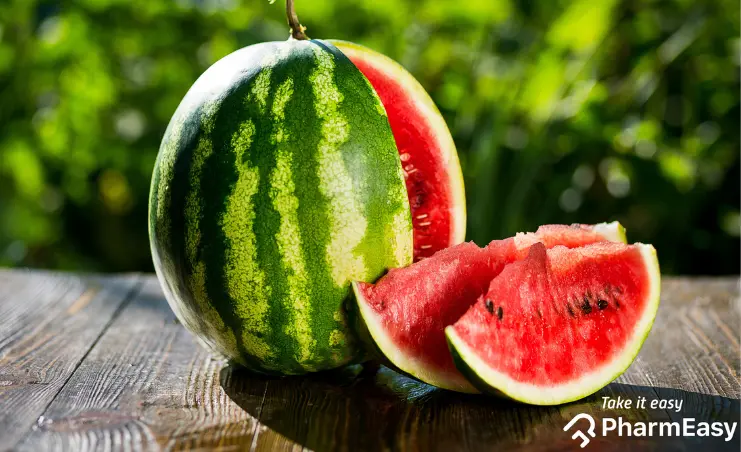
Watermelon seeds are low in calories and contain many micronutrients, including:
I might reveal some of the hidden superpowers of watermelon seeds. A study on rodents found that the methanolic extract from these seeds may have impressive antioxidant, anti-inflammatory, and pain-relieving abilities. It even outperformed some popular drugs in tests and showed great potential for future use in food and medicine. These seeds are definitely worth keeping an eye on15!
Dr. Rajeev Singh, BAMS
Watermelon seeds are rich in nutrients like proteins, essential fatty acids, magnesium, and zinc, which help support several health aspect. Some key potential benefits of watermelon seeds include:

Studies5 conducted on watermelon seed oil stated that it contains a large amount of good fatty acids, such as linoleic acid, oleic acid, omega 3 fatty acid, omega 6 fatty acid, and omega 9 fatty acid. When applied externally, it may help retain moisture, thus helping protect the skin from dryness and improving skin elasticity and softness5.
Sprouted watermelon seeds help to cleanse your skin as they are full of nutrients like vitamin C and antioxidants4. Their oil is widely used in various beauty products to help manage acne and early signs of ageing. Watermelon seeds also contain magnesium, which helps improve the overall skin appearance and is useful in the management of skin conditions like eczema where the skin becomes dry and itchy. Watermelon seeds may help moisturise dull, dry skin.
The zinc found in watermelon seeds may support skin repair by helping in protein synthesis and cell division.

Watermelon seeds are full of proteins, magnesium, iron and copper, which may help improve hair health. These seeds help in strengthening your hair by preventing breakage and split ends, maintaining hair colour, reducing hair thinning and hair loss, and promoting hair growth6. Therefore, by consuming watermelon seeds, you can improve your hair’s health.
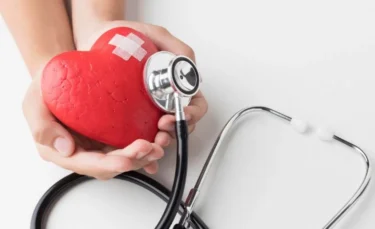
Watermelon seeds can promote heart health in many ways. Studies18 on rats stated that when fat rats were fed powdered watermelon seeds, it resulted in drastic changes in their lipid profile and reduced oxidative stress and inflammation (these are among the main risk factors for heart disorders). Watermelon seeds, being a good source of monounsaturated and polyunsaturated fatty acids, may help reduce the bad cholesterol in your body and may help protect your heart2 against heart attack and stroke. The high amount of magnesium in these seeds can potentially keep your heart healthy and regulate normal blood pressure.
Watermelon seeds have anti-inflammatory, antioxidant, and vasodilatory (widening of blood vessels) properties that may be helpful in keeping the heart healthy. The iron they supply is also vital in carrying oxygenated blood to the whole body. The zinc in these seeds plays a key role in heart health as it can regulate the calcium movement in your heart.
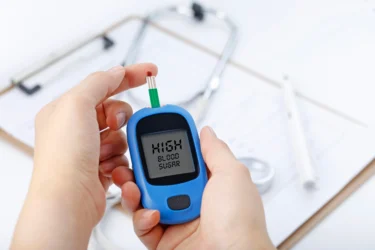
A study17 on rats states that by administering watermelon seed extract, a significant reduction in blood glucose levels was achieved. This may be because of the methanol content in it, which improved the insulin secretion in the pancreas. Hence, watermelon seeds may be used as a medicine in managing diabetes7. If you are suffering from blood sugar level fluctuations, try including these seeds in your diet. Magnesium helps to regulate the metabolism of carbohydrates which directly impacts blood sugar levels. These seeds may support blood sugar control in individuals with type 2 diabetes.

Watermelon seeds are rich in zinc and vitamin E, which play a main role in boosting the immunity of your body. They help your body to fight against various diseases and infections. Consuming these seeds may help keep you healthy8.

Watermelon seeds are rich in iron, magnesium, and zinc, which may help in the formation of bone and bone strength. Consuming watermelon seeds may prevent conditions like osteoporosis and may lead to healthy bones8.

In one study16, watermelon seed extracts are administrated in the Morris water maze and resulted in significant changes in memory and cognition function. These may be caused by the presence of various bioactive compounds in seeds. Consuming these seeds may, therefore, decrease the symptoms of dementia and Alzheimer’s disease, especially in older people9.
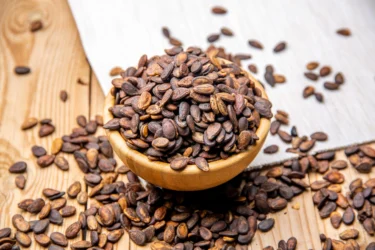
In animal study10, watermelon seeds extract are administrated in the male rats resulted in increase in sperm’s health. This is due to presence of antioxidant property in the seeds. Hence, by incorporating watermelon in seeds in the diet may help to improve the quality of sperm, which is the major issue in male infertility.
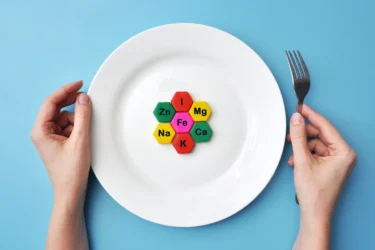
Watermelon seeds are rich in protein, minerals and fatty acids, all of which help to boost and maintain your energy for a longer period11. You can also consume these seeds as a snack whenever you feel hungry to help keep you fueled for a longer time.
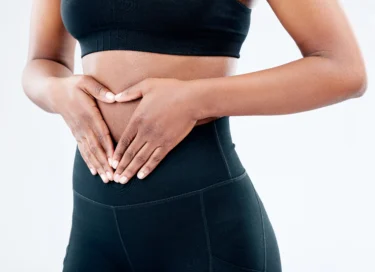
Watermelon seeds are known for their various vitamins and amino acid content. These nutrients may play a vital role in regulating as well as boosting the natural metabolism like protein, bone, and energy metabolisms12.

A study was conducted to find the effects of watermelon seeds on asthma. It stated that watermelon seeds have a generous dose of bioactive compounds, which means they are useful as a bronchodilator by modulating calcium-mediated signal target proteins13. Hence, they are useful in the management of the symptoms of asthma. However, further more studies are needed to understand and prove this statements.

Watermelon seeds have a high amount of lycopene. Various studies stated that consumption of lycopene is associated with risk of prostrate cancer. The studies also stated that men consuming high amount of lycopene may reduce the incidence of prostate cancer by 25% and reduce the risk of prostate cancer by 44%1.
You can eat watermelon seeds raw, sprouted, and roasted. In any form, these seeds are tasty and healthy. Usually, watermelon seeds provide more nutrition once they are sprouted.
Watermelon seeds are best consumed roasted. You can easily roast watermelon seeds and sprinkle some salt over them to make for a savoury snack. This can be both a delicious as well as a healthy way to consume watermelon seeds on the go. Here are a few more recipes with watermelon seeds that you can try at home.
Roast watermelon seeds on a skillet over medium heat until they turn slightly reddish. Transfer them to a bowl and coat well with thick sugar syrup. Lightly grease a pan with coconut oil, spread the sugar-coated seeds onto it, and press down to form a firm layer. Once set, cut into bars and enjoy these sweet, crunchy watermelon seed snacks.
Start by dry roasting watermelon seeds with red chillies in a pan. Once done, transfer the mixture to a bowl, add a little salt and sugar, and grind it into a coarse powder. In another pan, heat some oil and add mustard seeds, urad dal, curry leaves, and a pinch of asafoetida. Toss in the peanuts and fry them until they turn golden brown. Finally, add cooked rice along with the ground watermelon seed powder, mix everything thoroughly, and serve warm.
Watermelon seeds can also be used to prepare simple, healthy desserts. Grind the seeds into a fine powder, then prepare sugar syrup in a pan. Add the powdered seeds to the syrup and cook until the mixture thickens to a cake-like consistency. Once set, cut into diamond shapes to make watermelon seed barfis, ready to serve.
I’ve got some exciting news about watermelon seeds. Turns out, the methanolic extract from these seeds has some impressive powers. It may have great potential against ulcers. Yes, studies on rats show that this extract might be the remedy we’ve been looking for to tackle ulcers14.
Dr. Siddharth Gupta, B.A.M.S, M.D (Ayu)
Watermelon seeds, when consumed in moderate quantities, do not cause any specific side effects. If you consume excessive amount of watermelon seeds for long time, it may lead to anaemia or osteoporosis3. However, if you notice any symptoms after eating watermelon seeds, you must visit a doctor immediately. It is important to consult a doctor and confirm whether it is safe for you to eat watermelon seeds specifically.
Also Read: Butterfly Pea Flower: Uses, Benefits, Side Effects & More!
Despite their modest size, watermelon seeds are packed with nutrients. Rich in protein, good fats, vital minerals, and antioxidants, they help healthy digestion, heart health, strong hair, and glowing skin. When consumed in moderation, these frequently wasted seeds may become a daily superfood that supports general health, whether they are sprouted, roasted, or used as oil.
Also Read: Lotus Seed: Uses, Benefits, Side Effects and More By Dr. Smita Barode
Disclaimer: The information provided here is for educational/awareness purposes only and is not intended to be a substitute for medical treatment by a healthcare professional and should not be relied upon to diagnose or treat any medical condition. The reader should consult a registered medical practitioner to determine the appropriateness of the information and before consuming any medication. PharmEasy does not provide any guarantee or warranty (express or implied) regarding the accuracy, adequacy, completeness, legality, reliability or usefulness of the information; and disclaims any liability arising thereof.
Links and product recommendations in the information provided here are advertisements of third-party products available on the website. PharmEasy does not make any representation on the accuracy or suitability of such products/services. Advertisements do not influence the editorial decisions or content. The information in this blog is subject to change without notice. The authors and administrators reserve the right to modify, add, or remove content without notification. It is your responsibility to review this disclaimer regularly for any changes.
Comments

Leave your comment...

View all comments(3)
You may also like
Amazing.
Thank you. Glad you liked it!
Thank you for sharing this amazing information. It is very helpful and worth my time.
✌